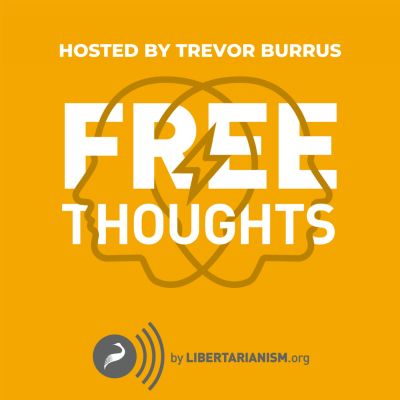A weekly show about politics and liberty, featuring conversations with top scholars, philosophers, historians, economists, and public policy experts. Hosted by Trevor Burrus. Hosted on Acast. See acast.com/privacy for more information.
https://www.libertarianism.org/podcasts/free-thoughts
The United States of Paranoia: A Conspiracy Theory
This week we discuss the history of conspiracy theories in America with Jesse Walker. What counts as a conspiracy theory? What are the different kinds of conspiracy theories? Are there any theories that have turned out to be true?
How do these theories fade in and out of our national consciousness? Are there any uniquely libertarian conspiracy theories? Is there a way to recognize a conspiracy theory when we come across it?
Show Notes and Further Reading
Walker’s books are The United States of Paranoia: A Conspiracy Theory (2013) and Rebels on the Air: An Alternative History of Radio in America (2001).
Walker mentions reading Robert Anton Wilson and Robert Shea’s Illuminatus! Trilogy when he was young. Here’s a video of Robert Anton Wilson speaking at the Libertarian Party’s nominating convention in 1987.
Richard Hofstadter’s 1964 article “The Paranoid Style in American Politics.”
Frederic Wertham’s 1954 book warning of the supposed dangers of children reading comic books, Seduction of the Innocent.
Arthur Miller’s classic play “The Crucible,” which is a dramatized version of the Salem witch trials (and which was written as an allegory of McCarthyism).
Joseph Uscinski and Joseph Parent’s American Conspiracy Theories uses empirical data to analyze trends in conspiracy theories between 1890 and 2010.
Movies mentioned in this episode:
Invasion of the Body-SnatchersThe Manchurian CandidateThey LiveHosted on Acast. See acast.com/privacy for more information.
